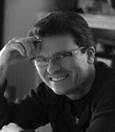CHRISTMAS JUBILATIONS
December 2016
Program Notes by Sanford Dole
Program Notes by Sanford Dole
Welcome to another exciting season of Bay Choral Guild presenting the world’s great choral music! We strive to include a mix of well-known and lesser-known works across the programming year, and this season is no exception. In addition, this season is special because we have commissioned new works by local composers to be premiered on each of the three concert sets.
Our concert takes as its title the name of one of our featured works, Christmas Jubilations, by the esteemed American composer Daniel Pinkham. I decided to create a Christmas-themed concert this year after having presented large-scale “blockbuster” works on our opening show the past two years—Brahms’s Requiem in 2014 and Carl Orff’s Carmina Burana in 2015. But in doing Christmas music I wanted to find something out of the ordinary to make this a compelling show. Remembering that BCG had enjoyed success performing Pinkham’s Advent Cantata and Christmas Cantata in the past, I went to his website to see what other Christmas pieces are in his catalogue. I came across a reference to Christmas Jubilations but found that there was very little information about it, and no recordings of the complete work are available. However, his publisher did include a private recording of the last movement, which I found delightfully quirky. I decided to take a chance and program the complete work. Perhaps what appealed to me most, aside from it setting uncommon Christmas texts, was the fact that it is scored for the unusual combination of chorus and woodwind quintet.
Our concert takes as its title the name of one of our featured works, Christmas Jubilations, by the esteemed American composer Daniel Pinkham. I decided to create a Christmas-themed concert this year after having presented large-scale “blockbuster” works on our opening show the past two years—Brahms’s Requiem in 2014 and Carl Orff’s Carmina Burana in 2015. But in doing Christmas music I wanted to find something out of the ordinary to make this a compelling show. Remembering that BCG had enjoyed success performing Pinkham’s Advent Cantata and Christmas Cantata in the past, I went to his website to see what other Christmas pieces are in his catalogue. I came across a reference to Christmas Jubilations but found that there was very little information about it, and no recordings of the complete work are available. However, his publisher did include a private recording of the last movement, which I found delightfully quirky. I decided to take a chance and program the complete work. Perhaps what appealed to me most, aside from it setting uncommon Christmas texts, was the fact that it is scored for the unusual combination of chorus and woodwind quintet.

With Pinkham as the starting place I set about finding other pieces that employ woodwinds as the accompaniment and found that they are less common than you might think. Happily, the composers’ collective that I am a part of (Swirly Music) includes Dale Ramsey, an organist and composer from Kansas City, Missouri. Mr. Ramsey has written a broad range of chamber music and sacred pieces, the latter having won numerous prizes. He tells me that he chose to use a woodwind quintet in his setting of Magnificat and Nunc Dimittis specifically because it is unusual. He thought this would have an appeal in college settings that have choral and orchestral programs. So far, however, only community groups such as ours have performed it. I find the contrapuntal writing in the winds to be very skillful and his text setting to be assured and rhythmically astute. The composer notes that “These Biblical texts are often associated with the Advent season of the Christian calendar. They are also sung any time of the year at Evensong in Episcopal and Anglican traditions.”

It is a thrill to be presenting the world premiere of Henry Mollicone’s Missa Brevis for the Refugees of War at these concerts. Mollicone has been on my radar since we performed his delightfully humorous National Weather Forecast a few years back. I knew he was based in California, but didn’t realize he lived right here, in Saratoga, until I contacted him about this commission. A graduate of the New England Conservatory, Mollicone has been active as a composer, conductor, and pianist professionally since his first job at New York City Opera as an assistant conductor. He was a musical assistant for Leonard Bernstein’s bi-centennial show 1600 Pennsylvania Ave, working directly with Mr. Bernstein. His compositions have been performed throughout the United States and in Europe, and he has conducted for several American opera companies and festivals.
Newport Classic Ltd has produced a feature documentary film, The Face on the Barroom Floor: The poem, the place, the opera, largely about Mr. Mollicone’s short opera of the same title. Major commissions have come from The Central City Opera, The San Francisco Opera, Houston Grand Opera, The Lyric Opera of Kansas City, The San Jose Chamber Orchestra, The Minnesota Opera, The Long Beach Symphony, The Fremont Symphony, The Santa Cruz Symphony, and the San Jose Symphonic Choir. Mr. Mollicone has recently finished a new opera, Lady Bird: First Lady of the Land, with librettist Sheldon Harnick, commissioned and premiered by Texas State University at San Marcos. The production can be seen in its entirety on YouTube.
I have enjoyed getting to know Henry as we worked together to prepare the performance edition of his piece for these concerts. I asked him to tell me about the inspiration for the Mass. Here is his response:
Newport Classic Ltd has produced a feature documentary film, The Face on the Barroom Floor: The poem, the place, the opera, largely about Mr. Mollicone’s short opera of the same title. Major commissions have come from The Central City Opera, The San Francisco Opera, Houston Grand Opera, The Lyric Opera of Kansas City, The San Jose Chamber Orchestra, The Minnesota Opera, The Long Beach Symphony, The Fremont Symphony, The Santa Cruz Symphony, and the San Jose Symphonic Choir. Mr. Mollicone has recently finished a new opera, Lady Bird: First Lady of the Land, with librettist Sheldon Harnick, commissioned and premiered by Texas State University at San Marcos. The production can be seen in its entirety on YouTube.
I have enjoyed getting to know Henry as we worked together to prepare the performance edition of his piece for these concerts. I asked him to tell me about the inspiration for the Mass. Here is his response:
As of this writing, there are over 4 million refugees in Europe and over 4 million in Africa alone; many of these people have nowhere to go, and often are living in dangerous refugee camps. This work was conceived as a kind of musical prayer for these members of the human family. It is my hope that we can quickly work toward a solution to this situation.
Musically, the work is traditionally tonal, written in major and minor keys in a chromatic way, unlike most of my larger choral works, which are largely modal. The melodic vocal line is of primary importance, while the accompaniment is quite contrapuntal.
Having never written a vocal work with accompaniment of woodwind quintet, I studied Pinkham’s Christmas Jubilations, which appears on the same program of my premiere. This is an honor to me, as Daniel Pinkham was my undergraduate composition teacher, and we shared a close friendship.

Daniel Pinkham was born in Lynn, Massachusetts in 1923. He studied organ performance and music theory with Carl F. Pfatteicher at Phillips Academy, Andover. At Harvard he studied with Walter Piston and Aaron Copland, among others. There he also studied harpsichord with Wanda Landowska and organ with E. Power Biggs. At Tanglewood he studied composition with Arthur Honegger and Samuel Barber, and subsequently with Nadia Boulanger. Before passing away in 2006, Pinkham was on the faculty at the New England Conservatory of Music, acting as senior professor in the Musicology Department. Pinkham was Music Director Emeritus of historic King’s Chapel in Boston, where he actively served from 1958 until 2000. He was the recipient of six honorary degrees.
Christmas Jubilations is a late work, composed for The Boston Cecilia in 2002. Harmonically it is quite dense and somewhat thorny, reminding me of the musical style that was in vogue in the 1960 s and 1970 s. While the texts of this five-movement work are all upbeat and hopeful, to our twenty-first-century ears—now that the prevailing compositional styles are more consonant than 50 years ago—their musical setting may seem more edgy than the words imply. But as we have gone through the rehearsal process I have come to really appreciate Pinkham’s compositional skill and the care he has taken in setting the words. Listen for the calm serenity in the third movement, as the chorus sings (in Latin) “On this day true peace has descended upon us.” In the fourth movement we hear a classic compositional device, a canon, in a very modern context. After an opening large phrase sung by the whole choir, the second large section begins with the tenors and basses singing a melody in unison. Then, before the men have completed the phrase, the sopranos and altos enter singing the same melody. But before they complete the phrase the altos break off to begin at the start of the phrase while the sopranos complete it. Two bars later, the tenors begin the phrase, eventually leading to a more complex canon, in which the clarinet also takes up the tune, followed by the oboe, then the flute. The final movement has a jaunty refrain that recurs several times with increasingly dense verses in between, sung unaccompanied. After the final refrain we hear a recapitulation of the material used in the first movement as a way to tie the whole piece up in a Christmas bow.

After intermission our program turns to more traditional Christmas tunes, many of which you may recognize. Swedish conductor and composer Anders Öhrwall had a long career in both Sweden and the United States. In 1964 he founded the Swedish Bach Choir, which enjoyed much acclaim on recordings with Nikolas Harnencourt as well as on international tours. He also conducted the Royal Stockholm Philharmonic Chorus and succeeded Erik Erikson as the director of the Swedish Radio Chorus. In the 1990 s he had a presence in this country as the music director of the Phoenix Bach Choir.
In 1962 Öhrwall produced Gaudete, an arrangement of nine late medieval songs from the collection Piæ Cantiones, first published in 1582. It was intended as an introduction to Swedish Christmas music for school children; in the original the songs are interspersed with Biblical readings relating the Christmas story. I am delighted by hearing these very familiar tunes set in a very straightforward manner but with a slight twist here and there to give them a certain freshness. The accompaniment of a woodwind trio adds to the charm.

Craig Kingsbury holds a degree in music composition from the University of Southern California. He worked for many years in the Los Angeles area as a choral conductor, musical arranger, and singer, and spent two years in Europe singing opera and oratorio. He now resides in the Pacific Northwest, where he produces recordings, and composes, edits, and arranges music. In 2002 he was appointed Composer in Residence for Southern Oregon Repertory Singers.
In Kingsbury’s O magnum mysterium, the oboe introduces a three-note motive that forms the basis for the piece. The three notes are a musical play on the name of a newborn friend to whom he dedicated the piece. The little girl’s name is Sophie Mei French, so he spells out her name using the solfège names for the notes G (sol), F# (fi), and E♭ (me). Each time we hear the word “mysterium” and later “Alleluia”, the sopranos sing Sol-Fi-Me, either on those notes or transposed. The whole piece is quite haunting, aided by the plangent sound of the oboe.
In Kingsbury’s O magnum mysterium, the oboe introduces a three-note motive that forms the basis for the piece. The three notes are a musical play on the name of a newborn friend to whom he dedicated the piece. The little girl’s name is Sophie Mei French, so he spells out her name using the solfège names for the notes G (sol), F# (fi), and E♭ (me). Each time we hear the word “mysterium” and later “Alleluia”, the sopranos sing Sol-Fi-Me, either on those notes or transposed. The whole piece is quite haunting, aided by the plangent sound of the oboe.

The American choral music world lost one of its leading lights in 2014, when revered Minnesota composer Stephen Paulus died at age 65 from complications of a stroke. But he had been very prolific and left us with over 400 choral works in addition to 12 operas, 55 orchestral works, and much chamber music. His abundant Christmas arrangements, as well as original works, both accompanied and a cappella, have become staples in the repertoire of church and community choirs alike. I am pleased to close tonight’s program with three such arrangements, all traditional carols with slightly jazzy harmonizations.
We are so pleased that you have joined us in kicking off the holiday season. We look forward to seeing you again on the first weekend in March, when we’ll present the premiere of my newest work, Songs of Isaiah, for chorus, strings, and harp. The program will also include music by Baroque composers J. S. Bach and Giovanni Pergolesi and modern English composers Paul Mealor and Cecilia McDowell.
We are so pleased that you have joined us in kicking off the holiday season. We look forward to seeing you again on the first weekend in March, when we’ll present the premiere of my newest work, Songs of Isaiah, for chorus, strings, and harp. The program will also include music by Baroque composers J. S. Bach and Giovanni Pergolesi and modern English composers Paul Mealor and Cecilia McDowell.

